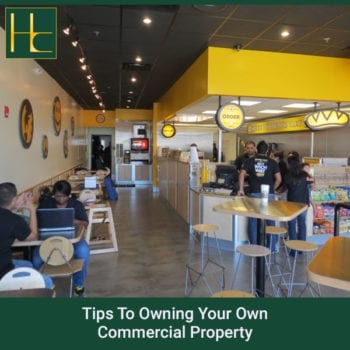 Purchasing commercial property is a very rewarding experience. It can be a fun process, but many also find it stressful. If you follow the following tips to owning your own commercial property, you will find the process to be fairly smooth.
Purchasing commercial property is a very rewarding experience. It can be a fun process, but many also find it stressful. If you follow the following tips to owning your own commercial property, you will find the process to be fairly smooth.
First, there are many questions that you will need to answer before you do anything. You will need to decide what type of commercial property you are looking for. And what you plan on doing with it. Some will rent it out to others while some decide to keep a business on the property. Others will purchase properties like this for equity reasons. Have a clear intention of what your plan is in the beginning.
You will also need to decide if you want to buy or lease the property. And where you would like the location to be at. If you want to partner with someone, who will that be? And you should also think about your financial situation. Do you have money for a down payment? Have you talked to anyone yet about financing?
While it seems like a lot of questions to ask yourself, there are still more to think about. How much time are you able to devote to the property? Do you have the skills to do some projects on your own? What projects will need to be taken on by a contractor? Will you need a property manager or landlord? Will either of those have many responsibilities?
Once you have asked and answered the list of questions, you can move on to bring yourself up to speed on commercial property lingo. If you are not familiar with the terms used, it can make for some awkward times with others. Here are some definitions that are worth knowing:
- Loan-to-value- Also known as LTV, this ratio of the money amount you are asking a lender to provide you with versus what the value of the property is.
- Debt Service Coverage Ratio(DSCR)- With the income, this is how much debt you will be able to pay back each year.
- Capitalization Rate- Often referred to as Cap rate, this is the income of the property divided up by what the total value of the property is.
- Cash on cash- Yearly income over how much was invested.
- Vacancy rate- The percentage of properties that are vacant at a given time period.
When looking into commercial property, you will want to view various ones. What do you like or don’t like about each property? Create a list of pros and cons based on the location, price, condition, size, and what the allowed uses are. You should also find out what the property taxes are, why the owner is selling the property, and what the property is currently being used for. Look for things that need to be repaired or fixed right away, and decide what the property can and can not be used for.
You really do need to think about location when purchasing property. Anything that is by a hospital, downtown area, or university will most likely sell the fastest. Find out if significant changes will be happening to the region around the commercial property as well before deciding if the investment is right for you.
You should also think about the people that you will need to hire. A mortgage broker is a must, as is an account, a commercial real estate lawyer, and a commercial realtor. There are others that you may need to hire depending on the shape of the property. These many include notaries, engineers, tax appraisers, and more.
Financing is a huge thing that many need to think about when it comes to commercial property. Do you have a mortgage company? Will you go through a credit union or a bank? There are many options for you to choose from, so it may take some time to find the best offer.
Speaking of offers, once you have your financing, you can make an offer as long as your lawyer has approved it. This means all paperwork must be reviewed by them to make sure everything is up to par.
Once the property is officially in your name, you can begin working on your plans for it. Consider contacting Hybrid Construction LLC to help you remodel your space.
